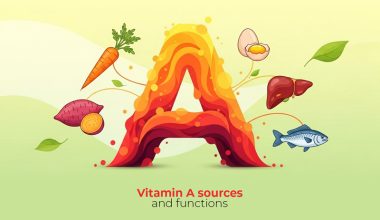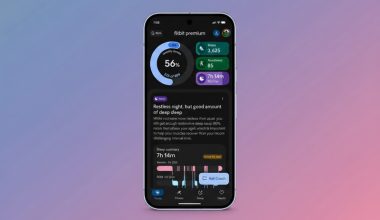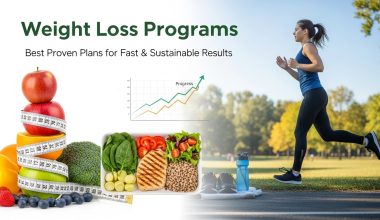It’s important to understand that while no fruit is a magical “testosterone booster,” many fruits contain vital vitamins, minerals, and antioxidants that support the body’s natural hormone production, reduce inflammation, and improve overall health all of which create a better environment for healthy testosterone levels.
Here is a list of fruits known for their testosterone-supporting properties, backed by the science behind how they work.
Top Fruits to Support Healthy Testosterone Levels
1. Pomegranates
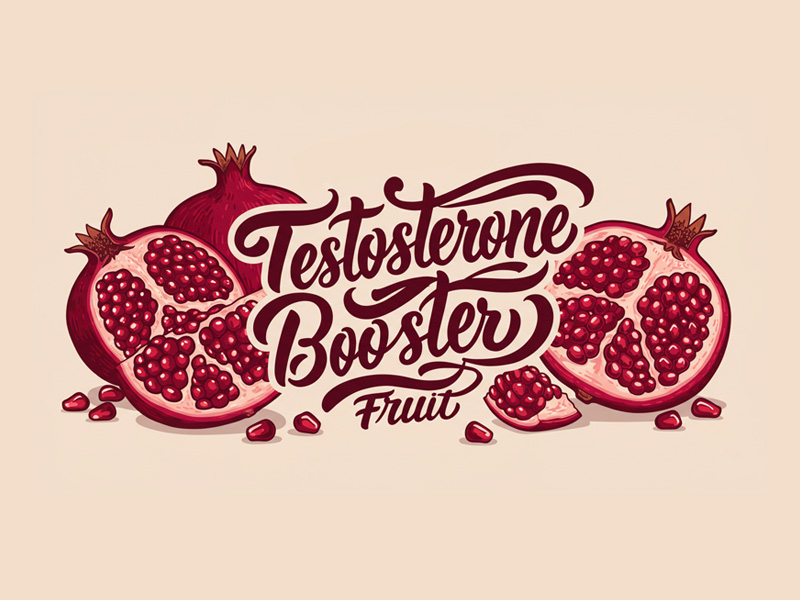
Why they work: Pomegranates are incredibly rich in antioxidants. A study found that drinking pomegranate juice significantly increased salivary testosterone levels in both men and women. It’s also believed to improve blood flow and reduce oxidative stress, which can benefit erectile function and overall hormonal health.
How to enjoy: Eat the arils (seeds) directly, drink 100% pure pomegranate juice (with no added sugar), or use them in salads.
2. Berries (Strawberries, Raspberries, Blueberries)
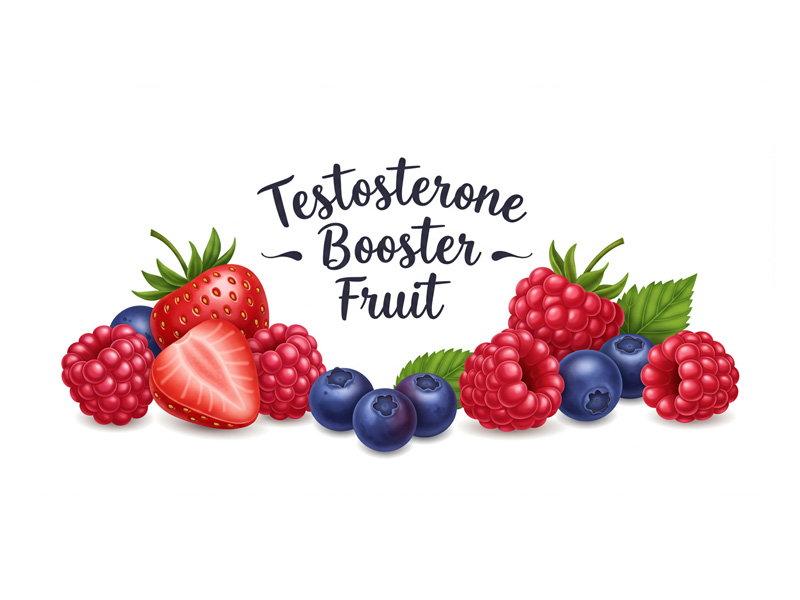
Why they work: All berries are packed with vitamin C and powerful antioxidants like flavonoids. Vitamin C is crucial as it helps reduce cortisol (the stress hormone), which directly competes with testosterone. Lower cortisol means a more favorable environment for testosterone production.
How to enjoy: Eat them fresh, frozen in smoothies, or as a topping for yogurt or oatmeal.
3. Bananas
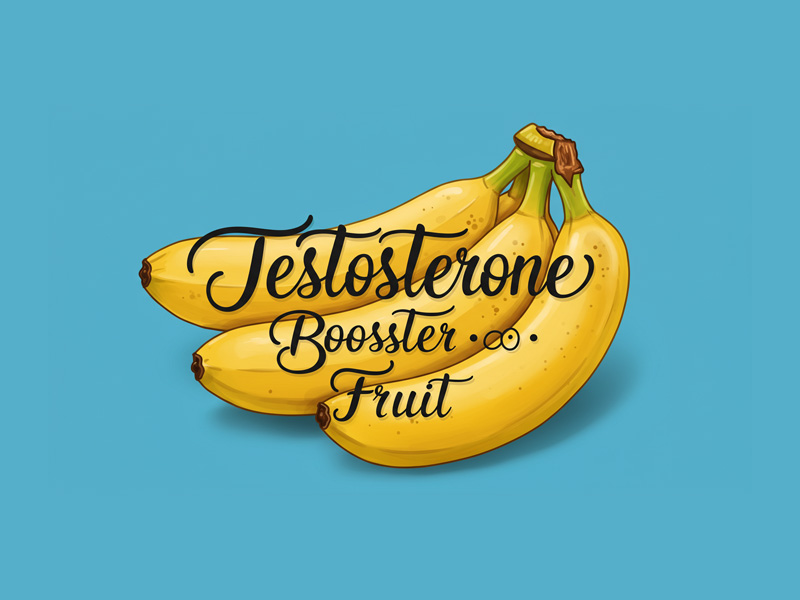
Why they work: Bananas contain an enzyme called bromelain, which is linked to increased sex drive and potentially supporting testosterone. They are also a great source of vitamin B6, which is essential for testosterone synthesis and helps regulate estrogen levels in men.
How to enjoy: Eat them on their own, add them to smoothies, or slice them on peanut butter toast.
4. Avocado (Yes, it’s a fruit!)
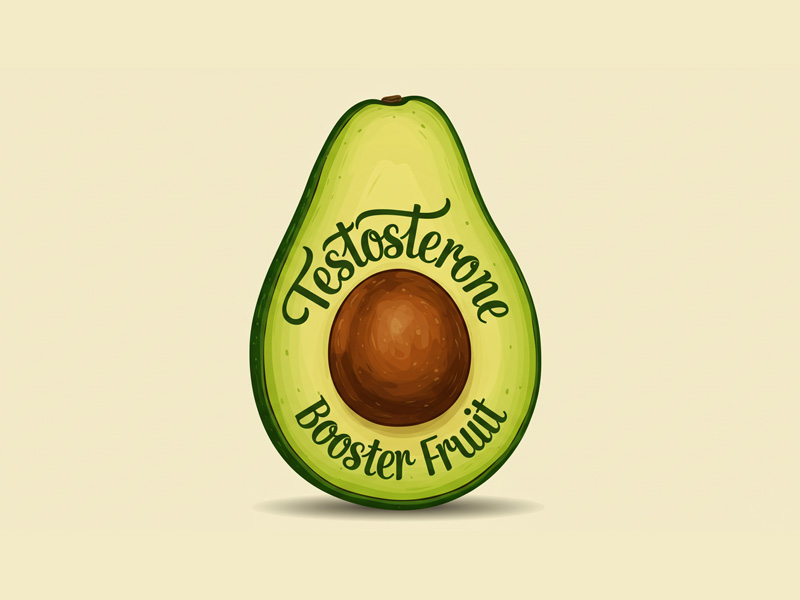
Why they work: Avocados are a powerhouse of healthy fats (monounsaturated fats) and vitamin E. Healthy fats are the building blocks for cholesterol, which is a direct precursor to testosterone. Vitamin E has been shown in some studies to help increase testosterone levels.
How to enjoy: In guacamole, on toast, sliced in salads, or as a creamy addition to smoothies.
5. Citrus Fruits (Oranges, Lemons, Limes, Grapefruits)
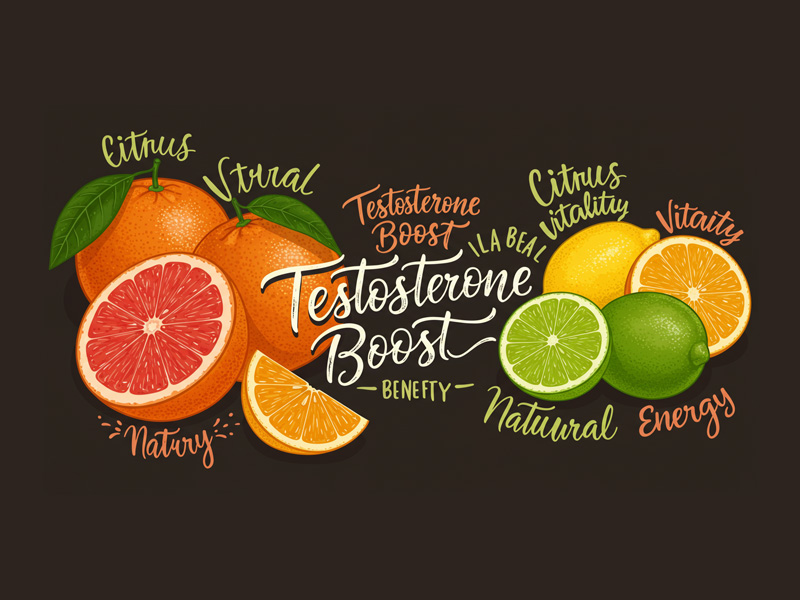
Why they work: Like berries, citrus fruits are extremely high in vitamin C. This is critical for combating the free radicals that can damage the Leydig cells in the testes responsible for producing testosterone.
How to enjoy: Eat the whole fruit for fiber, or drink freshly squeezed juice (be mindful of the sugar content).
6. Grapes (Especially Red and Purple)
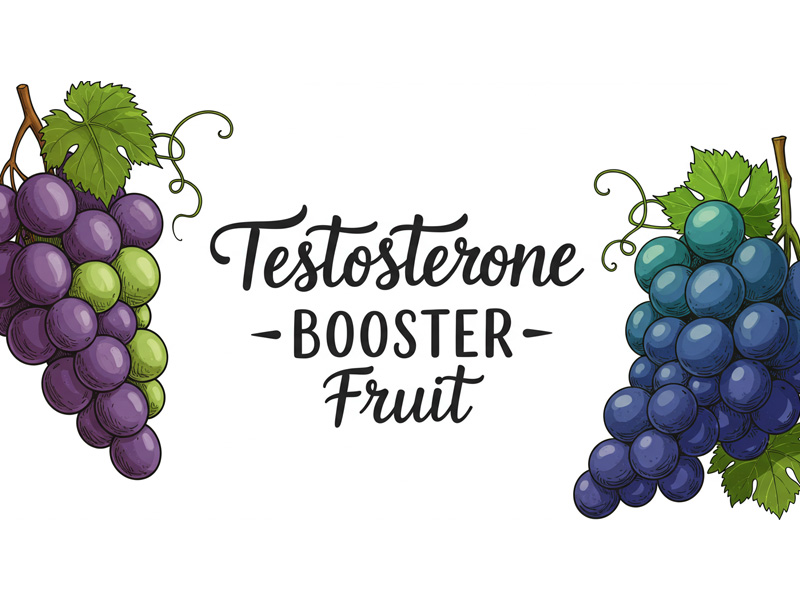
Why they work: Grape skins contain a potent antioxidant called resveratrol. Several studies have shown that resveratrol supplementation can significantly increase testosterone levels, sperm count, and fertility in animal studies. While human research is ongoing, it’s a promising compound.
How to enjoy: Eat them frozen for a snack, or enjoy a glass of red wine (in moderation) for resveratrol.
7. Watermelon
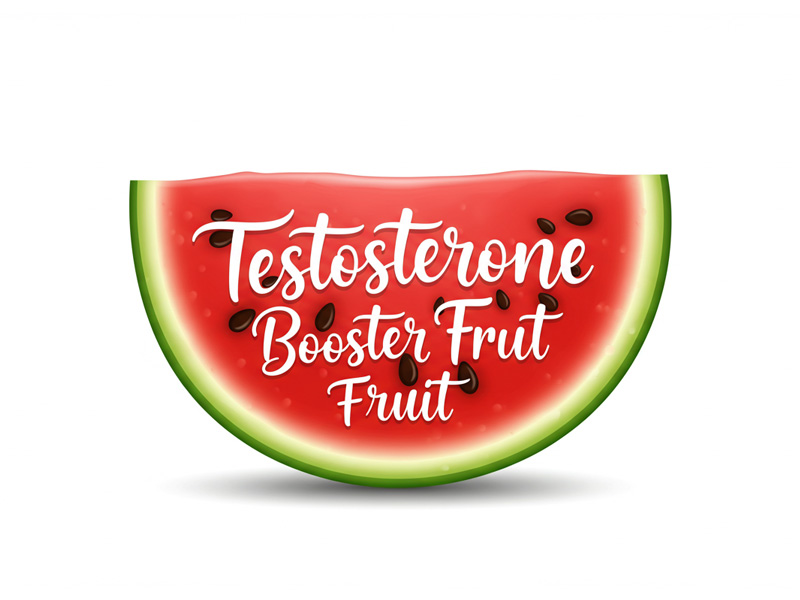
Why they work: Watermelon contains an amino acid called citrulline. While citrulline doesn’t directly boost T, it is converted in the body to arginine, which boosts nitric oxide production. This improves blood flow, which can enhance erectile function—a common concern related to low T.
How to enjoy: Enjoy chilled chunks of watermelon as a refreshing snack.
8. Cherries (Especially Tart Cherries)
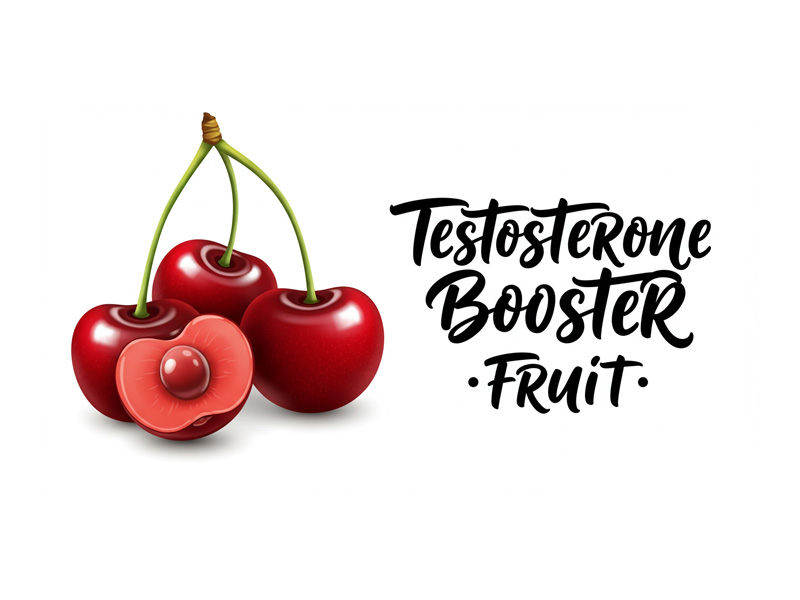
Why they work: Tart cherries are fantastic for reducing inflammation and oxidative stress. They can also improve sleep quality due to their natural melatonin content. Since quality sleep is one of the most critical factors for natural testosterone production, this is a major indirect benefit.
How to enjoy: Drink tart cherry juice concentrate (check for no added sugar), or eat dried tart cherries.
Important Considerations and Limitations
No Magic Bullet: Don’t expect to see a dramatic surge in testosterone from fruit alone. They are part of a holistic approach.
Sugar Content: Be mindful of fruit juice and dried fruit, as they are concentrated sources of sugar (fructose). Excess sugar can lead to weight gain and insulin resistance, which are detrimental to testosterone levels. Whole fruit is always the best choice because the fiber moderates sugar absorption.
The Big Picture: Testosterone is influenced far more by lifestyle factors than by any single food.
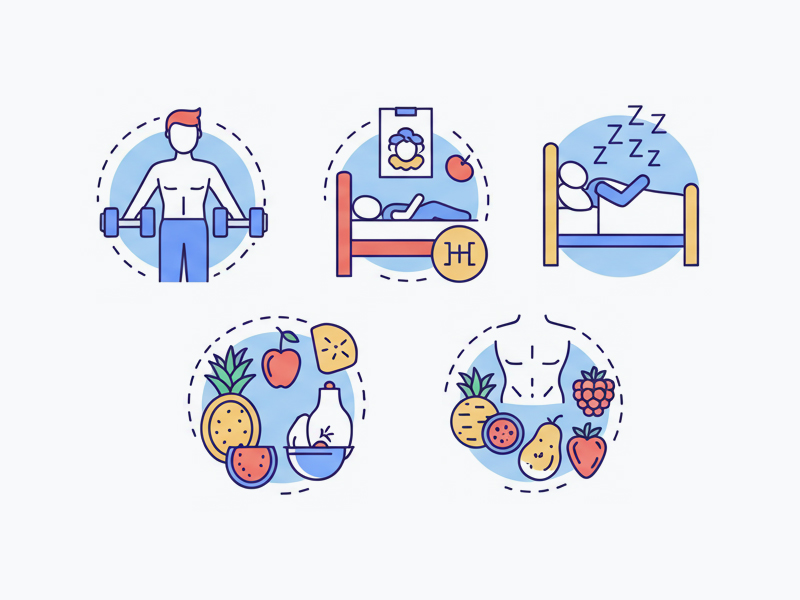
Beyond Fruit: Key Lifestyle Factors for Healthy Testosterone
1. Strength Training: Heavy compound lifts (squats, deadlifts, bench press) are proven to boost T.
2. Quality Sleep: Aim for 7-9 hours of high-quality sleep per night. This is non-negotiable for hormone health.
3. Stress Management: Chronic stress elevates cortisol, which crushes testosterone. Practice meditation, mindfulness, or hobbies.
4. Balanced Diet: Ensure you get enough Zinc (oysters, red meat, pumpkin seeds), Vitamin D (sunlight, fatty fish), Magnesium (nuts, leafy greens), and Healthy Fats (avocado, olive oil, nuts).
5. Maintain a Healthy Weight: Excess body fat, especially visceral fat, converts testosterone into estrogen.
Conclusion: Incorporate these fruits as part of a balanced, nutrient-dense diet. They provide excellent support, but they are just one piece of the puzzle. For significant concerns about low testosterone, it is essential to consult a healthcare professional or an endocrinologist for proper diagnosis and advice.



